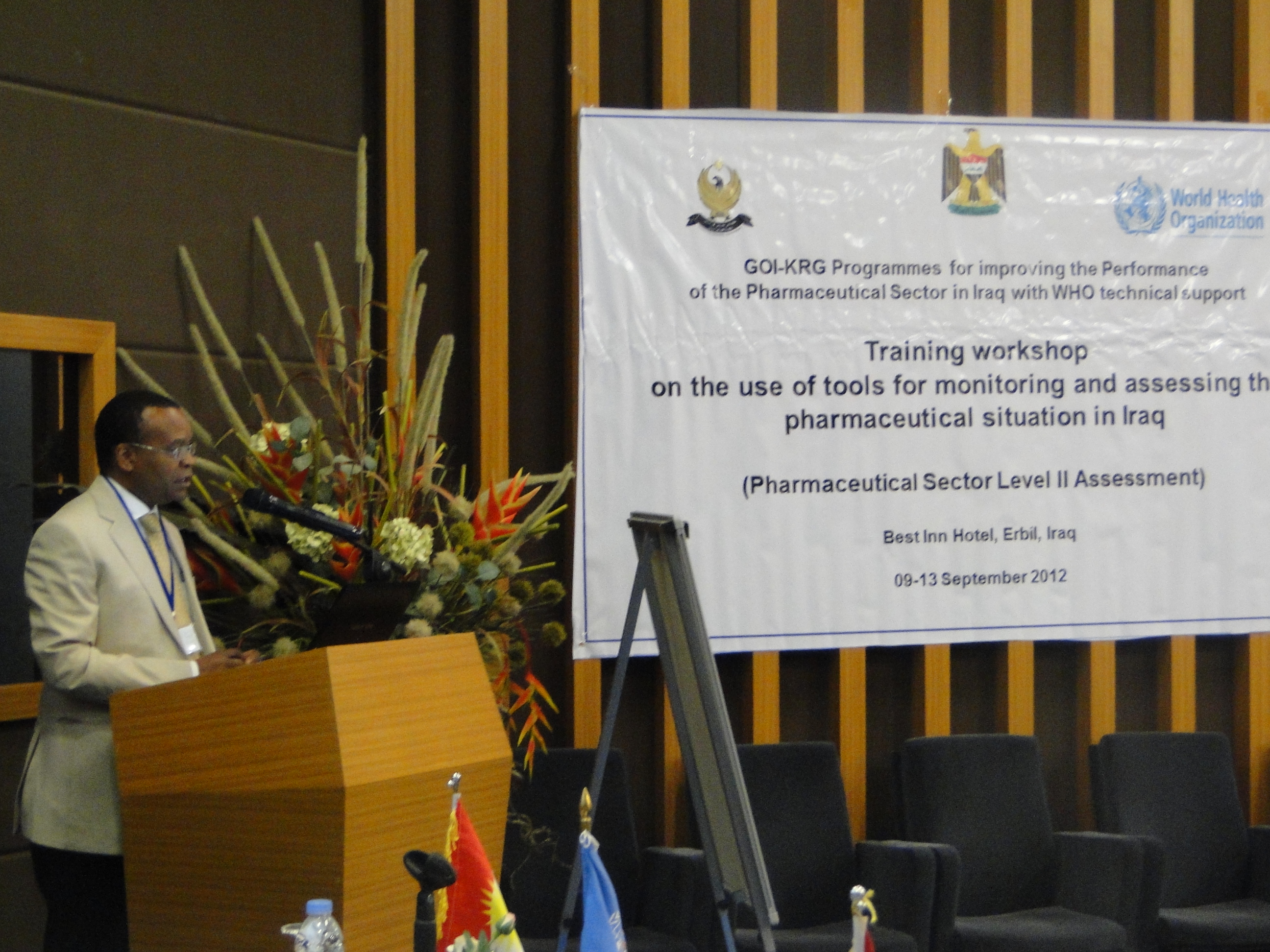Results of health status screening in 24 selected disadvantaged primary schools released, 16 October 2012
Baghdad, 16 October – The Ministry of Health and the Ministry of Education, in collaboration with the WHO Iraq country office, releases today the results of health status screening for primary school students in 24 selected disadvantaged primary schools. To support the efforts of the Government of Iraq in developing the capacity of the Iraqi education sector old mud school structures will also be replaced in some of the most deprived rural areas in Suleimaniyah, Salahaldin and Thiqar.
His Excellency, the Minister of Health of Iraq Dr Hamad Amin Majid said, “Our main objective is to provide high quality health education in a safe and healthy environment in all schools. We will start with the most affected schools that have suffered a decline in the health services provided, provide poor quality of drinking-water and sanitation services, implement insufficient health education programmes or that lack health preventive measures.”
WHO Representative in Iraq Dr Syed Jaffar Hussain said that, “An effective school health programme can be one of the most cost-effective investments a nation can make to simultaneously improve education and health. The results of this study provide baseline data that will assist in shaping new policies and strategic means to prevent important health risks among school children and engage the education sector in efforts to change the educational, social, economic and political conditions that affect risk".
This study provides baseline data on a wide range of student health indicators in primary schools, in addition to data on visual acuity and eye diseases, hearing and ear diseases, musculoskeletal abnormalities and assessment of nutritional status of students.
The results of the assessment revealed that 1.9% of students in the study have visual acuity and 39.7% have astigmatism. 15.4% of students suffer from stunting and 2.8% of students suffer from severe stunting; the highest recorded levels were in Salahuddin province.
Indicators show that 62% of students drink soft drinks more than three times a week, more than 82% drink tea more than three times per day and 3.2% of students in the 5–14 age group in the three governorates are obese.
In addition to the general examination that took place in 2011 by specialists, psychological support training was provided also to the teaching staff and students in coordination with health care centres.
H.E. Dr Majeed said, “Based on the result of the examination, necessary and appropriate action was taken, such as referral to hospitals, the provision of eye glasses for the visually impaired, or a recommendation for the provision of hearing aids for the hearing impaired”.
Efforts to support the Government of Iraq in developing the capacity of the Iraqi education sector through enhancing the learning environment in vulnerable areas in Iraq to meet the Education-for-All goals is a joint project being implemented by the Ministry of Health and Ministry of Education in the Federal Iraq and Kurdistan Regional Government, jointly with UN agencies (UNICEF as the leading agency, WHO, UN-HABITAT and UN-WOMEN), in partnership with local communities and with the financial support of the United Nations Development Group, Iraq Trust Fund.
RUBA HIKMAT | Technical Officer, Health Promotion and Education | World Health Organization, Iraq Office
Mobile: +962 (0) 799 499 455 | Phone: +962 6 5510438 - GPN 61012 |
WHO holds a workshop on “Health communication and media relations”
Amman, 13 September 2012 – The Ministry of Health in collaboration with the World Health Organization – Iraq Office organized an intensive four-day workshop to outline the main activities, and expected outcomes of the health communication and the importance of electronic media. The workshop was held in Amman from 13-16 September 2012.
On behalf of Dr. Majeed Hamad Amin, the Minister of Health in Iraq, Dr. Ziad Tareq Sarhan, Ministry of Health spokesperson and Head of Media Department said, “the workshop focused on the importance of planning for day-to-day work, as well as planning for emergencies. He also said that this workshop is the first of its kind bringing together all the media personnel working in the field.”
Workshop for data collectors on assessing and evaluating Iraq's national pharmaceutical situation
Erbil, The Ministry of Health of Iraq and the Ministry of Health of the Kurdistan Regional Government, with the technical support of World Health Organization, launched a five day training workshop (9 to 13 September 2012) for data collectors on the use of the WHO operational package for assessing, monitoring and evaluating the country pharmaceutical situation, also known as pharmaceutical sector level II assessment.
 Five governorates in Iraq have been randomly selected to conduct a pharmaceutical sector level II assessment
Five governorates in Iraq have been randomly selected to conduct a pharmaceutical sector level II assessment
For Iraq, five governorates (Anbar, Baghdad, Basra, Erbil and Muthana) have been randomly selected to serve as a representative sample of Iraq where the pharmaceutical sector Level II assessment will be conducted. The objective of the workshop is to train the assessment team comprising of two survey coordinators and 10 data collectors (two from each one of the five governorates) and 7 members of the national coordination committee on the use of the WHO developed tools.


